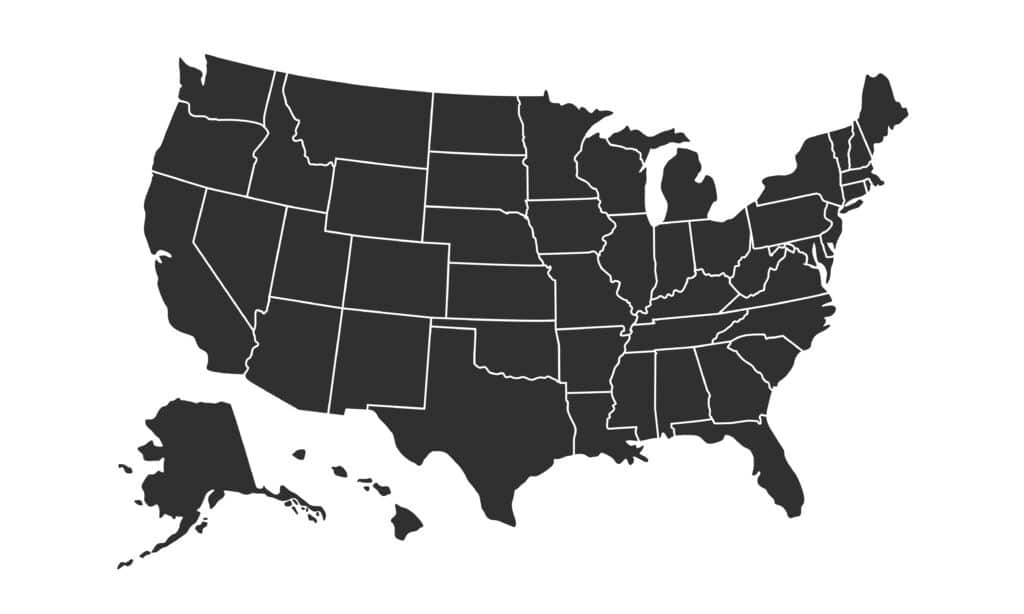Understanding what dermatologists earn can be tricky. This is especially true when you think about the costs of medical school and how student loans can weigh you down. Many future dermatologists look for clear information about average pay, possible salary increases, and what affects their income. This simple guide is here to give you a full overview of the financial side of being a dermatologist.
Average Dermatologist Salary
Defining the average dermatologist salary means looking at information from different sources. The Bureau of Labor Statistics (BLS) shows that the median yearly salary for dermatologists is $342,860. However, this number is just an average for the whole country and can vary.
Medscape’s physician compensation survey shows a much higher average dermatologist salary of $438,000. This difference shows that it is important to check many sources and think about things like location, years of experience, and the type of practice when looking at how much dermatologists can earn.
National Averages vs. Regional Variances
Dermatologist salaries in the United States can vary a lot depending on where you are. This is mainly due to the local cost of living and how many people need dermatological services. In big cities and states where living costs are high, like New York and California, dermatologists usually earn more. This extra pay helps cover the greater expenses.
Areas with a high cost of living may be a bit higher, whereas areas with a low cost of living may pay a little less. However, the overall expenses in those areas would be lower, making it easier to manage finances. Dermatologists should consider these points carefully when looking at job offers in different locations. Basically, it is critical for dermatologists to understand how average compensations are related to the cost of living to assist them in securing a great employment opportunity that pays well.
Comparing Academic vs. Private Practice Salaries
Academic dermatologists often enjoy the stability of fixed salaries with additional benefits like paid time off and pensions, making the overall compensation package quite appealing. On the other hand, private practice dermatologists may face fluctuating incomes, largely influenced by patient volume and the services they provide. Private practice can also offer higher earning potential – particularly through cosmetic procedures. However, academic roles often provide opportunities for research and teaching, fostering professional development and enhancing one’s resume.
Factors That Affect a Dermatologist’s Salary
Dermatology compensation varies widely and is influenced by several factors beyond national averages. Key elements such as years of experience, the type of practice, and location play significant roles in determining a dermatologist’s earnings.
For new dermatologists, starting salaries are generally lower compared to those with more experience. However, as they enhance their skills and expand their patient base, their income tends to grow.
Years of Experience
Dermatologists typically see their earnings increase as they gain more experience in the field. While new dermatologists can expect a solid starting salary, significant growth often comes after several years of practice.
This growth is largely driven by factors like a growing patient base, improved expertise in various skin treatments, and a strengthened reputation among peers and patients. Dermatologists with over ten years of experience post-training often earn significantly more than their less experienced counterparts.
Location

The saying “location, location, location” is very important when it comes to a dermatologist’s pay. Like other jobs, the job market for dermatologists changes depending on where you are. Areas with high demand, usually in busy cities or places with few dermatologists, often have higher salaries to lure and keep good workers.
Also, states with a higher cost of living, especially for real estate, usually show this in the pay they offer to dermatologists. This is a clear case of supply and demand affecting pay, with popular locations often able to pay more for skilled dermatologists.
If you’re considering relocating, it’s essential to research the job market, average salaries, and how living costs in the new area align with your financial needs. This preparation will help you make a financially sound decision.
Type of Practice
The choice of practice setting has a significant impact on a dermatologist’s earnings, especially concerning cash flow. Private practice often yields the highest income potential, particularly for those who own their practice. However, this path also involves the challenges of managing a business.
On the other hand, working in medical clinics or law firms provides a steady salary with predictable benefits, which may appeal to those seeking stability. Locum tenens roles, where dermatologists fill in temporarily, offer flexibility but may lack the earning security of full-time positions.
Subspecialties for Dermatologists
Choosing to focus on a specific area in dermatology can offer exciting job options and good pay. The salary for a dermatologist can change based on experience and where they work. Additionally, the earnings can differ between specializations. For instance, a pediatric dermatologist may earn different amounts compared to a cosmetic dermatologist.
Factors like the demand for special services, the difficulty of various procedures, and how people view each specialty can all play a part in how much doctors get paid in different areas of dermatology.
Pediatric Dermatology
Pediatric dermatologists are doctors who help children with skin problems. They treat issues like eczema, acne, birthmarks, and genetic skin disorders. While this work can be very rewarding, pediatric dermatologists generally earn a bit less money than dermatologists in other special areas.
One reason for this is the insurance payments for pediatric care, which are often lower. Still, pediatric dermatologists are very important in the medical field. They meet the special skin needs of young patients and give much-needed support to families with children who have skin conditions.
Procedural Dermatology/MOHS Dermatology
Procedural dermatology, particularly MOHS surgery, is among the highest-paying subspecialties. MOHS surgery is a precise and effective treatment for skin cancer that requires additional years of training.
MOHS surgeons spend extra years in training to learn this detailed procedure. Because there is a strong need for good skin cancer treatments, these surgeons can earn a lot of money.
If you enjoy surgery and want to help people with skin cancer, doing a fellowship in MOHS surgery can bring both professional growth and financial rewards.
Cosmetic Dermatology
Cosmetic dermatology is another high-paying field. These specialists focus on elective beauty treatments like reducing wrinkles, removing scars, and eliminating unwanted hair.
Since cosmetic procedures are not typically covered by insurance, patients pay out-of-pocket, creating significant earning potential. Dermatologists who establish a strong reputation and a loyal client base in this field can achieve considerable financial success.
Benefits to Increase the Value of Your Employment Contract
Getting a strong benefits package is key to improving your total pay as a dermatologist. Besides having a good salary, it is important to look at benefits such as retirement plans, paid time off, and insurance. These can really boost your financial outlook.
Paid Time Off
A good salary is important, but having enough paid time off is just as important. PTO allows you to take a break, recharge, and spend time with loved ones without financial concerns.
Even if it’s not money going into your savings account, paid time off helps you save money. It cuts down your costs for vacations and fun activities. When negotiating job offers, aim for a PTO policy that supports your work-life balance and personal well-being.
Pension
Securing a comfortable retirement needs good financial planning. If you are able to find a position that comes with a pension, these plans can help build a safety net for your life after work. Some employers offer a pension, which gives you regular payments in retirement. This can add to your savings and other sources of income.
Having a pension can be a big bonus when looking at job offers. It gives you peace of mind and a steady income during retirement.
401K/403B
A 401(k) or 403(b) retirement plan is a great way to save money over time and protect your financial future. These plans allow you to contribute a portion of your salary pre-tax, reducing your current taxable income and growing your savings tax-deferred.
Employer-matching contributions further enhance the value of these plans, essentially providing “free money” to help you reach your retirement goals. Maximize your contributions, especially if your employer offers matching, to build wealth effectively over time.
Disability
Disability insurance is an essential yet often overlooked form of financial protection. If you face an illness or injury that keeps you from working, this type of insurance can replace a portion of your lost income, helping you stay financially stable during tough times.
While many employers offer group disability plans, it’s a good idea to explore individual policies that fit your specific needs and income. Consulting with an insurance expert can help you determine the right level of coverage for your situation.
Healthcare
Healthcare costs are a big expense for individuals and families and a good healthcare plan from your employer offers important financial protection and peace of mind.
Employer-sponsored health insurance usually pays for a large part of medical costs. This includes doctor visits, hospital stays, and prescriptions. Having this coverage can save you money compared to individual plans and means you can keep more of your annual salary for other financial goals.
Key Takeaways
Knowing how dermatologist salaries are structured is essential for making informed career choices. Key factors like experience, location, and the type of practice significantly impact earnings. Specialties such as pediatric, procedural, and cosmetic dermatology can also influence income levels. Additionally, benefits like paid time off, pensions, and healthcare can enhance the overall value of a job offer and should be thoughtfully evaluated. Taking these aspects into account can help dermatologists maximize their earnings and job satisfaction.

